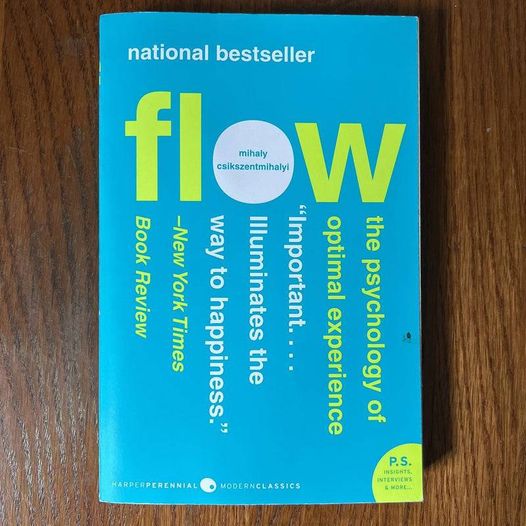In "Flow," Mihaly Csikszentmihalyi explores the concept of flow, a state of complete absorption in an activity where you lose track of time and self-consciousness. By identifying the nine key components of flow and strategies to cultivate it, the book empowers you to experience more joy, creativity, and fulfillment in various aspects of your life.
Lessons from "Flow: The Psychology of Optimal Experience" by Mihaly Csikszentmihalyi:
1. The Flow State
Csikszentmihalyi introduces the concept of flow, a state of complete absorption in an activity where you lose track of time and self-consciousness. This state is characterized by complete focus, a sense of control, and effortless action.
2. The Nine Components of Flow
The book identifies nine key components that contribute to the flow state: clear goals, immediate feedback, a balance between challenge and skill, action-awareness merging, a sense of control, the paradox of time, autotelic experience (doing something for its own sake), loss of self-consciousness, and the autotelic personality.
3. How to Enter Flow
Csikszentmihalyi outlines several strategies to cultivate flow experiences, including setting clear goals, finding the right challenge level, practicing and mastering skills, focusing on the present moment, eliminating distractions, and finding activities for intrinsic enjoyment.
4. The Benefits of Flow
Flow experiences are associated with a range of positive outcomes, including increased happiness, creativity, productivity, and motivation. They can also enhance learning, problem-solving, and overall well-being.
5. Overcoming Obstacles to Flow
The book explores common obstacles to achieving flow, such as fear of failure, self-doubt, perfectionism, and distractions. It offers strategies for overcoming these obstacles and cultivating a more flow-oriented mindset.
6. Flow in Everyday Life
Csikszentmihalyi emphasizes that flow is not limited to specific activities or professions. It can be experienced in various aspects of everyday life, such as work, hobbies, relationships, and even everyday tasks.
7. Finding Your Flow Triggers
The book encourages readers to identify their personal flow triggers, the activities and situations that are most likely to lead them into a state of flow. This enables them to intentionally create more flow experiences in their lives.
8. The Importance of Balance
Csikszentmihalyi emphasizes the importance of maintaining a balance between flow and other aspects of life. While flow experiences are enriching, they should not come at the expense of other priorities, such as relationships, personal well-being, and rest.
9. Flow as a Journey
The book concludes by emphasizing that flow is a journey, not a destination. It is a lifelong practice of optimizing your experiences and finding ways to create more joy, meaning, and purpose in your life.




